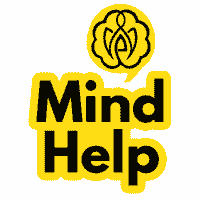- Schizophrenia is a complex mental health disorder that suffers from numerous misconceptions and negative stereotypes.
- Understanding the realities and facts about schizophrenia can help support affected individuals and create a society that embraces diversity and compassion in the realm of mental health.
What Is Schizophrenia?
Schizophrenia is a chronic and severe mental disorder characterized by abnormal thoughts, perceptions, emotions, and behaviors. It affects a person’s ability to think clearly, manage emotions, make decisions, and relate to others.
Onset typically occurs in late adolescence and the exact cause of schizophrenia remains unclear. The main symptoms of schizophrenia can be categorized into:
- Positive symptoms (delusions, hallucinations, disorganized thinking)
- Negative symptoms (lack of motivation, social withdrawal, diminished emotional expression)
- Cognitive symptoms (poor concentration, memory problems)
10 Unique Facts About Schizophrenia
- Schizophrenia is a very rare mental health disorder affecting about 1% of the global population.
- Its symptoms typically appear in late adolescence or early adulthood.
- The exact cause of schizophrenia is unknown, but a combination of genetic, environmental, and neurochemical factors is believed to contribute to its development.
- After substance use disorder (SUD), schizophrenia has the largest relapsing rate of all mental health disorders.
- Individuals with schizophrenia may experience auditory hallucinations, hearing voices that others do not hear, which can be distressing and disruptive to their daily lives.
- Delusions are another common symptom of schizophrenia, where individuals hold false beliefs despite evidence to the contrary.
- Substance abuse is common among individuals with schizophrenia, as some may turn to drugs or alcohol to cope with their symptoms.
- A majority of schizophrenia diagnoses mistake the disorder to be dissociative identity disorder, clinical paranoia, or acute psychosis.
- Early intervention is crucial in improving outcomes for individuals with schizophrenia, as prompt diagnosis and treatment can help prevent or minimize the impact of the illness.
- Public awareness and understanding of schizophrenia are important to combat stigma and promote empathy and support for those living with the condition.
Schizophrenia: The Most Misunderstood Mental Health Disorder?
Schizophrenia has long been one of the most misunderstood mental health disorders. Media portrayal of schizophrenia often perpetuates stereotypes and misrepresentation, leading to misconceptions and fear among the general public.
It is crucial to recognize that people with schizophrenia are not inherently violent or dangerous. They are also neither unstable nor incapable of executing professional commitments or enjoying personal relationships. In fact, they are more likely to be victims of violence rather than perpetrators.
Schizophrenia And Other Mental Health Disorders
Although schizophrenia is a distinct disorder, it shares certain similarities with other mental health conditions. One such condition is dissociative identity disorder (DID), previously known as multiple personality disorder.
While both schizophrenia and DID involve alterations in perception and identity, they differ in essential aspects. Schizophrenia primarily affects a person’s thoughts and emotions, while DID involves the presence of multiple distinct identities or personalities.
Another crucial distinction is between schizophrenia and psychosis. Psychosis refers to a symptom that can occur in various mental health disorders, including schizophrenia.
It involves a loss of contact with reality, resulting in hallucinations, delusions, and disorganized thinking. While all individuals with schizophrenia experience psychosis, not all individuals experiencing psychosis have schizophrenia.
Breaking The Stigma This World Schizophrenia Day
World Schizophrenia Day (May 24) serves as an opportunity to challenge the stigma surrounding this disorder and promote understanding and empathy. Breaking the stigma requires education and awareness, dispelling myths and misconceptions, and fostering an inclusive and supportive society.
By emphasizing the importance of early intervention, access to quality mental healthcare, and social inclusion, we can create an environment that empowers individuals with schizophrenia to seek help without fear of judgment or discrimination.












